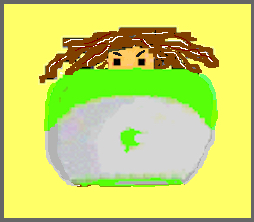Published 9 February 2014.

I’m betting you have a shelf or drawer full of old software that won’t work on your computer – and hasn’t for YEARS. You’ve got disks, you’ve got books, but it’s all completely unusable, and has been a long time. What are your options for out-of-date software that will no longer work on any computer or device you have because of a change/upgrade in operating systems, other than throwing it away? And do user agreements mean you have to just throw it away?
First, let me say that this blog is not a legal document and I’m not offering you legal advice. I’m presenting you research I’ve done and what it means to me. If you are that worried about being sued by a company for reselling software, you should stop reading now – and destroy the software before throwing it away, period.
There is NOT an ultimate legal agreement regarding reselling software. There’s not even agreement from software companies about reselling software. For instance, Adobe says “if you upgrade from Adobe Acrobat 6 to Acrobat 7, you cannot sell Acrobat 6 to someone else. If you purchase a new license, rather than upgrade your old software, you are permitted to transfer your old license. That is, as long as you did not purchase the original license with a volume licensing arrangement.” But in the case of Vernor v. Autodesk, the courts said that because Autodesk had said, explicitly, that old software had to be destroyed – that Vernor never owned it, merely licensed it – he was not allowed to resell it. One wonders if Vernor had thrown the software into the trash, and someone had retrieved it and started using it, rather than Vernor trying to sell it on eBay, if Autodesk could have sued Vernor for not truly destroying the software.
So, before you sell old software
- Search for legal cases concerning that software on Google or Bing. If you see a case where the manufacturer of that software has sued a reseller, destroy the software and then throw the software away.
- Make CERTAIN it is truly vintage, as in version you have is NOT available for purchase from the original software manufacturer, is no longer supported by the company, and is NOT available from BestBuy or other resellers; also, that it does not work with the current Mac or Windows operating systems.
Once you’ve met that benchmark:
- Look to see if the version you have is being sold on eBay or Craigslist. If it is being sold by others, you will probably be safe doing it as well.
- Put all the original disks and books together. Old software is of more use when the original documentation is available.
- If there is detailed information online about this vintage software, such as on Wikipedia or a tribute page, link to it on any online information you post, and be detailed about what the software will work on – and what it will NOT work on – in terms of hardware and operating systems.
- Try eBay and Craigslist for reselling.
- I’m uncertain about using social media for this – I’d hate for you to attract attention for an over-zealous lawyer who doesn’t understand that what you are selling is no longer supported by the company and no longer works on modern hardware or operating systems.
- If you want to donate the software, try Craigslist, your social media accounts, any freecycle-type online forum or group in your community, and clubs for vintage computers. Note if you are willing to mail the software and pay those postage costs yourself. ook to see if there are nonprofits in your area that accept donations of old software, like FreeGeek in Portland, Oregon. Goodwill might take it. World Computer Exchange might take it.
- Take your items to a local swap meet and hope for the best.
- Look for a working vintage computer that the software would work on, buy it and set it up in your house with your vintage software as a conversation piece/play thing.
This web page, EMS Old Software Exchange, says it buys and sells “the world’s largest selection of old/used/out-of-print software for the PC and other microcomputers.” But I can’t tell if it’s still in operation. And note that it has info on how to find out if your user agreement forbids you reselling a particular software tool.
Here’s the wikipedia entry for abandonware.
Also see: Shout out to nonprofit efforts to refurbish computers.
Also see my page on how I use my lime green clam shell iBook, bought in 2000. It also has advice on using these old Apple laptops that I’ve found from various sources online. Unfortunately, as of 2013, I can no longer get online with this device.
What’s your advice for selling or donating used, old software? And have you ever looked for older versions of software for a vintage computer that you use?

This article is the second most popular entry on my blog. If you have benefited from this blog or other parts of my web site or my YouTube videos and would like to support the time that went into researching information, developing material, preparing articles, updating pages, paying for this web site to be hosted, etc. (I receive no funding for this work), here is how you can help.
